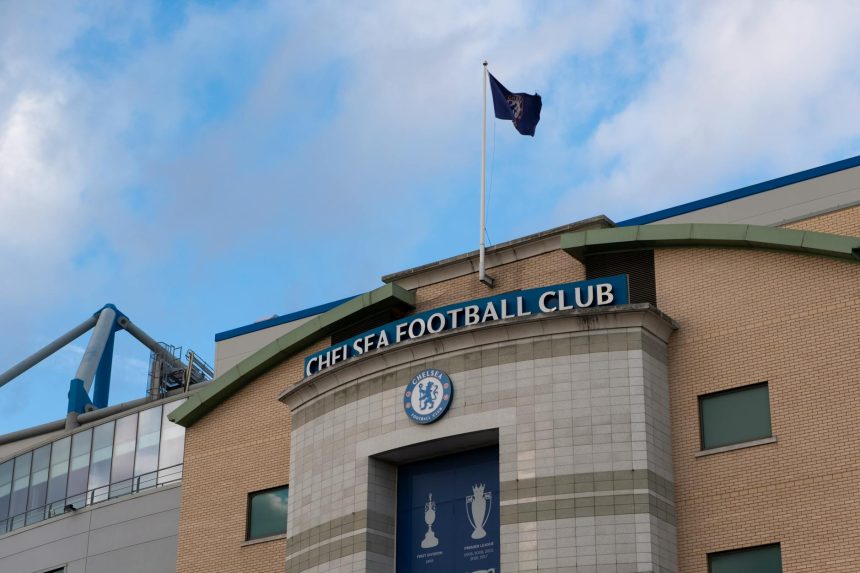american-investment-in-football
American Investment in Football: The US Billionaires Reshaping UK Soccer
The beautiful game, a cultural cornerstone across England and Wales, is undergoing a significant transformation. Far from just a European affair, the increasing influx of American investment in football clubs is reshaping the very fabric of the sport. What drives these transatlantic ventures, and what does it mean for the future of beloved teams and their passionate fan bases?
The Rise of American Investment in Football Clubs
Once a rarity, US ownership in English and Welsh football has become a dominant trend. From the Premier League giants to clubs in the lower divisions, American capital is making its presence felt. This surge isn’t merely coincidental; it reflects a strategic alignment of opportunities and ambitions.
Why US Investors Are Eyeing UK Soccer
The allure of English football is undeniable. Its global reach, passionate fan base, and established league structures offer a compelling proposition for investors seeking high-growth assets. Unlike the franchise model prevalent in American sports, the promotion and relegation system in UK football provides a unique competitive dynamic that can drive significant financial returns through success on the pitch.
Beyond the glamour of the Premier League, many US investors see untapped potential in clubs across the Championship and lower leagues. These teams often represent opportunities for strategic growth, infrastructure development, and brand expansion at more accessible valuations. Financial Times frequently covers these cross-border sports business acquisitions, highlighting the increasing appetite for global sports assets.
A Brief History of Cross-Atlantic Ownership
While some American ownership dates back decades, the pace has accelerated significantly in the 21st century. Early forays often involved individual wealthy benefactors, but today’s landscape features sophisticated private equity firms, sports investment groups, and consortiums. This evolution reflects a growing understanding of the unique sports business ecosystem in the UK.
Impacts of US Ownership on English and Welsh Football
The arrival of American owners brings more than just capital; it often introduces new business philosophies, operational strategies, and a fresh perspective on brand building and fan engagement. This can lead to both exciting opportunities and potential points of contention.
Financial Infusion and Strategic Shifts
One of the most immediate benefits of American investment in football is the injection of capital. This funding can be critical for:
- Infrastructure Development: Investing in state-of-the-art training facilities, stadium upgrades, and youth academies.
- Player Acquisition: Enabling clubs to compete for top talent in the global transfer market.
- Commercial Growth: Expanding global sponsorships, merchandising, and media rights deals.
- Data Analytics: Implementing advanced data-driven approaches for player recruitment and performance analysis, a common practice in US sports.
These strategic shifts often aim to transform clubs into more globally recognized brands, enhancing their revenue streams beyond traditional matchday income. Many owners bring expertise in marketing and media from their US ventures.
Challenges and Fan Perspectives
Despite the financial upside, US ownership isn’t without its critics. Concerns often revolve around:
- Cultural Understanding: Worries that owners may not fully grasp the deep-seated traditions and community ties of football clubs.
- Debt Loading: Fears that clubs could be burdened with debt used to finance acquisitions.
- Super League Aspirations: Apprehensions about owners prioritizing financial gain over sporting integrity, as seen with past controversial proposals.
- Ticket Prices: Speculation that a focus on commercialization might lead to increased costs for loyal supporters.
Engaging with the fan base and respecting local culture is paramount for successful long-term ownership, a lesson many new investors are learning. Deloitte’s Annual Review of Football Finance provides an in-depth look at the economic health of the sport, often touching on ownership trends.
Key Players in American Investment in Football
The roster of US owners in English and Welsh football is diverse, ranging from individual billionaires with a passion for the game to large investment consortiums. Their motivations vary, from pure sporting ambition to strategic portfolio diversification.
Who Are the Major US Owners?
Prominent examples include the Glazer family at Manchester United, Fenway Sports Group at Liverpool, and Todd Boehly’s consortium at Chelsea. These high-profile investments often set the tone for the broader trend, demonstrating the significant capital and strategic interest coming from across the Atlantic.
Beyond the Premier League: Lower League Opportunities
The reach of US ownership extends far beyond the top tier. Clubs in the Championship, League One, and League Two are increasingly becoming targets. These investments often aim to replicate success stories of smaller clubs rising through the ranks, offering a higher potential return on investment if promotion is achieved. This widespread interest underscores the depth of the American investment in football market.
The Future Landscape of American Investment in Football
As the global sports market continues to evolve, so too will the nature of ownership. The relationship between US investors and UK football is likely to deepen, bringing both opportunities and ongoing challenges.
What’s Next for Transatlantic Ownership?
Expect to see continued consolidation and new entrants. The focus may shift towards integrating technology, enhancing digital fan experiences, and leveraging global media partnerships. The strategic playbook from American sports, which emphasizes strong commercial operations and diversified revenue streams, will likely continue to influence UK clubs.
Predictions for Club Development and League Growth
The long-term impact of this trend could see a more commercially robust and globally connected English and Welsh football pyramid. While maintaining the unique heritage of each club remains a balancing act, the financial stability and strategic vision offered by many US owners could propel the leagues to new heights of competitiveness and worldwide appeal.
The influx of American investment in football is undeniably a defining characteristic of the modern game. It’s a complex interplay of capital, culture, and competition that promises to shape the future of English and Welsh football for years to come.
Stay informed on the latest trends shaping the future of international sports investment.
Featured image provided by Pexels — photo by gina bichsel








